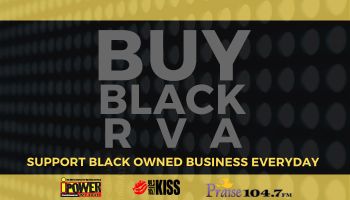Thinking of cashing in on the Beyoncé baby boom? Too late! That train has already left the station, only four weeks after little Blue Ivy Carter was born.
New parents (singer/actress) Beyoncé Knowles-Carter and (rapper/businessman) Shawn “Jay-Z” Carter filed an application with the U.S. Patent and Trademark Office to protect their baby’s name — and reserve it for a future line of baby carriages, baby cosmetics, diaper bags and other undoubtedly fabulous accoutrements for the fashion-forward infant.
In the entertainment industry, trademarking your baby’s name is just smart business. There all sorts of folks who might try to slap it on some tacky baby bib.
For example — Fashion designer Joseph Mbeh submitted an application to trademark “Blue Ivy Carter NYC” on Jan. 11 — just four days after the baby was born. Another applicant filed on Jan. 20 for “Blue Ivy Carter Glory IV” to use on a line of fragrances. The trademark office has already denied both filings, saying the name belonged to a “very famous infant” and consumers would falsely assume that the products were approved by the celebrity parents.
Mbeh, who intended to produce children’s dresses, skirts, and underwear using the name, issued a groveling statement after his Jan. 25 Trademark office rejection. A big misunderstanding! He says he planned to pitch the idea to Beyoncé and Jay-Z and never, ever, intended to poach any of their baby bucks.
The application by BGK Trademark Holdings — Beyoncé’s company — is pending but is basically a done deal because parents are legally authorized to trademark the names of their minor children, experts say.
However, some in the field have raised an eyebrow over the unusual swiftness with which the Trademark office has taken action on the Blue Ivy filings. Beyoncé critics question whether she and Jay-Z are receiving special treatment.
A typical trademark application takes three to four months, explained Chris Ott, a trademark attorney with Vorys, Sater, Seymour and Pease. It’s usually first come, first serve, with a long, long line. It’s worth the wait. “You can make a ton of money with t-shirts,” said Ott.
A trademark identifies the source of goods and services and protects business from unauthorized use of potentially valuable brands.
But it’s not a given that Blue Ivy was fast-tracked because of her connections. In fairness, the folks at the trademark office follow the news just like the rest of us.
The office gets thousands of applications a year —398,667 in 2011 — and most end up in what we’ll call the normal (slow) line. But now and then a name or phrase emerges in the culture — “Shock and Awe,” “The Situation,” “Occupy,” “1%,” “99%” — and the office sees a sudden spike in filings.
“The agency will identify actual or potential filing trends for trademarks with similar examination issues,” explained Cynthia Lynch, administrator for trademark policy and procedure. All those zeitgeisty applications get pulled aside and channeled to examiners who can research and quickly rule upon similar filings. When Blue Ivy was born, officials anticipated the name would show up and were ready to reject imposters.
Except. . . for one lucky boutique in Sturgeon Bay, Wisconsin. The clothing store “Blue Ivy” filed for trademark on Jan. 19, 2011 (before Beyonce was even pregnant) and received approval on Aug. 23. The store owners now have the right to use that name on their store, website and related items as long as they want. Or they can sell the trademark if, say, some multimillionaire star made an offer.
















